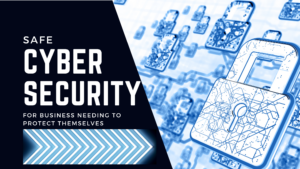The Genuine Advantages Your Los Angeles Business Gains from Managed IT Services
Engaging with Advanced Networks Managed IT Services in Los Angeles can offer numerous benefits to a business, especially when connected to an account manager who guides through IT issues and prepares for the future. Here are some key advantages:
Proactive Issue Resolution:
Tailored IT Solutions:
With an account manager, your business can receive personalized attention. The manager understands your specific needs and tailors IT solutions to align with your business goals and requirements.
Strategic Planning:
Strategic planning is a pivotal component of the services offered by a managed IT services provider, particularly when guided by a dedicated account manager. This process transcends the immediate concerns of day-to-day IT operations and delves into the long-term vision of your business. Here’s an in-depth exploration of how strategic planning contributes to the overall success of your IT infrastructure:
Anticipating Future Needs:
- Strategic planning begins with a forward-looking approach. The account manager collaborates closely with your business to understand its growth trajectory, industry trends, and evolving technological landscape. By forecasting future needs, the IT strategy can be designed to accommodate anticipated expansions and changes.
Scalability Considerations:
- An integral part of strategic planning involves ensuring that the IT infrastructure is scalable. The account manager assesses your current capacity and plans for the future, implementing solutions that can seamlessly adapt to the evolving demands of your business. This scalability is crucial for preventing disruptions and facilitating smooth transitions during periods of growth.
Technology Roadmap Development:
- The account manager assists in crafting a comprehensive technology roadmap that outlines the evolution of your IT systems over time. This roadmap serves as a strategic guide, detailing planned upgrades, technology adoptions, and the retirement of outdated systems. It aligns technological advancements with your business goals, fostering a cohesive and purposeful IT strategy.
Alignment with Business Objectives:
- Strategic planning ensures a direct alignment between IT initiatives and overarching business objectives. The account manager works to understand the specific goals of your organization and tailors the IT strategy accordingly. This alignment fosters a symbiotic relationship, where technology becomes an enabler for achieving broader business aspirations.
Risk Mitigation:
- Anticipating potential challenges and risks is an integral part of strategic planning. The account manager conducts a thorough risk assessment, identifying vulnerabilities and developing proactive measures to mitigate potential disruptions. This includes cybersecurity measures, disaster recovery planning, and compliance considerations.
Integration of Emerging Technologies:
- Staying abreast of technological advancements, the account manager strategically integrates emerging technologies that can provide your business with a competitive edge. This might involve adopting innovations such as artificial intelligence, Internet of Things (IoT), or advanced analytics, depending on their relevance to your industry and goals.
Budgetary Planning:
- Strategic planning encompasses budgetary considerations. The account manager collaborates with your business to allocate resources effectively, ensuring that the IT strategy aligns with financial constraints while maximizing the return on investment.
Regular Reviews and Adjustments:
- The strategic planning process is iterative. The account manager conducts regular reviews of the IT strategy, making adjustments based on changes in business priorities, technological advancements, or external factors. This adaptive approach ensures that your IT infrastructure remains agile and responsive to evolving circumstances.
In essence, strategic planning, guided by an experienced account manager, transforms IT from a reactive support function into a proactive and integral component of your business strategy. This forward-thinking approach contributes to the resilience, efficiency, and competitiveness of your organization in an ever-evolving business
Cost-Efficiency:
Cost-efficiency is a critical aspect of effective IT management, and the guidance of an experienced account manager plays a pivotal role in achieving financial optimization. This involves not only minimizing immediate expenses but also ensuring that your IT investments align with your business objectives. Here’s a detailed exploration of how an account manager contributes to cost-efficiency in IT decision-making:
Comprehensive Cost Analysis:
- The account manager conducts a thorough analysis of your current IT expenditures, including hardware, software, maintenance, and support costs. This comprehensive view allows for a detailed understanding of your IT budget and areas where potential cost savings can be realized.
Optimization of IT Resources:
- By understanding the specific needs of your business, the account manager ensures that IT resources are allocated efficiently. This involves optimizing server capacities, network bandwidth, and software licenses to match your actual usage, preventing overprovisioning and unnecessary expenses.
Vendor Management:
- Effectively managing relationships with IT vendors is crucial for cost-efficiency. The account manager, drawing on their industry expertise, negotiates favorable contracts, explores bulk purchase discounts, and ensures that your business is getting the best value for its investments in hardware, software, and services.
Technology Rationalization:
- The account manager evaluates your existing technology stack to identify redundant or underutilized tools. By streamlining your IT ecosystem, unnecessary costs associated with licensing, maintenance, and support for redundant technologies can be eliminated.
Cloud Optimization:
- If your business utilizes cloud services, the account manager ensures optimal usage. This may involve rightsizing virtual machines, optimizing storage costs, and leveraging reserved instances or spot instances to take advantage of cost savings offered by cloud providers.
ROI Assessment:
- Before making any significant IT investments, the account manager assists in conducting a thorough return on investment (ROI) analysis. This involves evaluating the anticipated benefits against the costs, ensuring that any new technology or solution brings tangible value to your business.
Budget Planning and Forecasting:
- The account manager collaborates with your business to develop a realistic and strategic IT budget. By forecasting future IT expenditures, unexpected costs can be minimized, and financial resources can be allocated more efficiently, aligning with your long-term business plans.
Energy Efficiency Considerations:
- An often overlooked aspect of cost-efficiency is the energy consumption of IT infrastructure. The account manager explores energy-efficient solutions, such as virtualization and optimized hardware configurations, to reduce both operational costs and environmental impact.
Training and User Productivity:
- Investing in user training and ensuring a productive workforce are part of the cost-efficiency strategy. The account manager may identify opportunities for training programs that empower your employees to use IT resources effectively, reducing the likelihood of costly errors and downtime.
Lifecycle Management:
- The account manager oversees the lifecycle management of IT assets. This involves planning for the replacement or upgrade of hardware and software before they become outdated or pose security risks, preventing unforeseen costs associated with system failures or breaches.
In essence, the account manager serves as a financial steward for your IT investments, guiding decision-making towards solutions that not only meet your operational needs but also do so in a manner that is cost-effective and aligned with your business objectives. This approach contributes to a sustainable and financially optimized IT environment, ensuring that every dollar spent on technology translates into tangible value for your organization.
Enhanced Security:
Enhanced security is paramount in the digital age, where businesses face an ever-evolving landscape of cybersecurity threats. Advanced Networks, with its focus on next-gen technology, collaborates with your business to implement robust cybersecurity measures. The account manager, as a central figure in this process, plays a crucial role in keeping your business safe from cyber attacks. Here’s an in-depth exploration of how this commitment to enhanced security is realized:
Threat Intelligence Integration:
- Advanced Networks employs cutting-edge threat intelligence systems to stay abreast of the latest cybersecurity threats. The account manager ensures that this intelligence is integrated into your security infrastructure, allowing for proactive identification and mitigation of potential risks.
Continuous Monitoring and Detection:
- Through next-gen technology, the cybersecurity framework is equipped with advanced monitoring and detection tools. These tools constantly analyze network traffic, system logs, and user behavior, swiftly identifying any anomalies that could indicate a potential security threat.
Adaptive Security Measures:
- Recognizing that cyber threats are dynamic, the account manager oversees the implementation of adaptive security measures. This includes the use of artificial intelligence and machine learning algorithms that evolve and adapt to new threats in real-time, providing a proactive defense against sophisticated attacks.
Multi-Layered Defense Strategies:
- Enhanced security is achieved through the implementation of multi-layered defense strategies. The account manager collaborates with your business to establish a comprehensive security posture, incorporating firewalls, intrusion detection systems, antivirus software, and encryption to create a resilient defense against diverse attack vectors.
Regular Security Audits and Assessments:
- A proactive approach involves conducting regular security audits and assessments. The account manager ensures that your cybersecurity measures are tested comprehensively, identifying potential vulnerabilities before they can be exploited by malicious actors.
Incident Response Planning:
- Despite robust preventive measures, the account manager develops and implements an incident response plan. This includes protocols for rapid response and containment in the event of a security breach, minimizing potential damage and downtime.
Employee Training and Awareness:
- The account manager recognizes that human factors play a crucial role in cybersecurity. Employee training and awareness programs are implemented to educate staff about potential threats such as phishing attacks, social engineering, and other tactics employed by cybercriminals.
Compliance Management:
- For businesses subject to industry-specific regulations, the account manager ensures that security measures align with compliance requirements. This includes adhering to standards such as GDPR, HIPAA, or other relevant regulations, providing not only security but also regulatory assurance.
Endpoint Security:
- Recognizing that endpoints are common targets for cyber attacks, the account manager implements advanced endpoint security solutions. This includes the use of next-gen antivirus software, endpoint detection and response (EDR) systems, and mobile device management to secure all entry points to your network.
Regular Security Updates and Patch Management:
- Your account manager oversees the timely application of security updates and patches. This essential practice helps in closing potential vulnerabilities and ensures that your systems are fortified against exploits that target outdated software.
In summary, the commitment to enhanced security through next-gen technology is a dynamic and evolving process. The account manager serves as a proactive partner in this journey, continuously assessing the threat landscape, implementing state-of-the-art security measures, and keeping your business informed and prepared to face the challenges posed by the ever-changing cybersecurity landscape. This comprehensive approach aims not just to defend against known threats but to anticipate and counteract emerging risks, safeguarding the integrity and continuity of your business operations.
VCIO (Virtual Chief Information Officer) Reports:
Virtual Chief Information Officer (VCIO) reports stand as a cornerstone in the realm of managed IT services, representing a strategic partnership between businesses and their designated account managers. Often assuming the role of a virtual Chief Information Officer, the VCIO becomes an invaluable asset by delivering strategic insights, technology recommendations, and comprehensive reports that shed light on the performance and health of your IT infrastructure. Let’s delve deeper into the significance and multifaceted aspects of VCIO reports:
Strategic Insights:
- VCIO reports go beyond the immediate technical details; they encompass strategic insights that align IT initiatives with your overarching business goals. The account manager, acting as the VCIO, provides a high-level view of how technology can be leveraged to drive innovation, enhance competitiveness, and contribute to the long-term success of your business.
Technology Roadmap Development:
- A pivotal component of VCIO reports is the development of a technology roadmap. This strategic document outlines the planned evolution of your IT systems, incorporating upcoming upgrades, technology adoptions, and considerations for maintaining a modern and efficient technology ecosystem.
Performance Metrics and KPIs:
- VCIO reports meticulously detail performance metrics and key performance indicators (KPIs) relevant to your IT infrastructure. This includes data on system availability, response times, security incidents, and other critical parameters, offering a quantitative view of how well your IT environment is functioning.
Risk Assessment and Mitigation Strategies:
- Understanding that cybersecurity threats and other risks are ever-present, VCIO reports include comprehensive risk assessments. The account manager provides insights into potential vulnerabilities and outlines mitigation strategies to fortify your defenses against cyber threats, ensuring a proactive stance against potential disruptions.
Technology Recommendations:
- VCIO reports provide informed technology recommendations based on industry best practices and emerging trends. This may include suggestions for adopting new technologies that can enhance efficiency, streamline operations, or address specific pain points within your business processes.
Budgetary Considerations:
- Recognizing the financial aspect of IT management, VCIO reports often incorporate budgetary considerations. The account manager outlines the estimated costs associated with proposed technology initiatives, helping your business make informed decisions that align with your financial constraints.
Compliance and Regulatory Guidance:
- For businesses operating in regulated industries, VCIO reports address compliance requirements. The account manager ensures that your IT infrastructure aligns with industry-specific regulations and standards, reducing the risk of non-compliance and potential legal implications.
Business Continuity and Disaster Recovery Planning:
- VCIO reports encompass aspects of business continuity and disaster recovery. The account manager outlines strategies to ensure that your business can swiftly recover from unforeseen disruptions, minimizing downtime and safeguarding critical data and operations.
User Training and Adoption Strategies:
- Recognizing the importance of user engagement and adoption of new technologies, VCIO reports may include strategies for user training. The account manager outlines plans to empower your staff to effectively use and maximize the benefits of IT resources.
Regular Consultations and Adjustments:
- VCIO reports are not static documents but part of an ongoing dialogue. The account manager conducts regular consultations to discuss the findings of the report, address any emerging challenges, and make adjustments to the IT strategy based on evolving business needs and technological advancements.
In essence, VCIO reports, delivered by your dedicated account manager, transcend traditional IT reporting by providing a holistic and strategic view of your technology landscape. By merging technical expertise with a keen understanding of your business objectives, the VCIO becomes a trusted advisor, guiding your business towards a technologically advanced, secure, and resilient future. This collaborative approach ensures that your IT investments align with your strategic vision, fostering innovation, efficiency, and long-term success.
Technology Roadmap:
A Technology Roadmap, a fundamental component of managed IT services spearheaded by a Virtual Chief Information Officer (VCIO), transcends the conventional approach to technology planning. It stands as a strategic document that not only charts the course of your IT systems but also integrates seamlessly with your broader business objectives. Let’s delve into the multifaceted aspects of a Technology Roadmap and its pivotal role in shaping the technological trajectory of your business:
Business Alignment:
- At the core of a Technology Roadmap is the alignment with your long-term business goals. The VCIO collaborates closely with key stakeholders to understand the overarching objectives of your organization, ensuring that every technological initiative is purposefully directed towards advancing these goals.
Forecasting Technological Evolution:
- A Technology Roadmap doesn’t just focus on the present; it anticipates future technological trends and advancements. The VCIO, leveraging industry insights and market intelligence, ensures that your IT systems are not only current but also well-prepared for upcoming innovations, providing a strategic advantage in a rapidly evolving tech landscape.
Upgrade and Migration Strategies:
- The roadmap lays out clear strategies for upgrading existing systems and migrating to new technologies. This involves assessing the lifespan of current IT infrastructure, planning for necessary upgrades, and orchestrating seamless transitions to ensure minimal disruption to your business operations.
Scalability Planning:
- Recognizing the dynamic nature of businesses, the Technology Roadmap incorporates scalability planning. The VCIO ensures that your IT systems can adapt and expand in tandem with the growth of your business, preventing bottlenecks and supporting scalability without the need for major overhauls.
Risk Mitigation Strategies:
- Anticipating potential risks is integral to the roadmap. The VCIO incorporates risk assessments and develops mitigation strategies to address potential challenges, be they related to cybersecurity threats, technological vulnerabilities, or external factors that could impact your IT infrastructure.
Security Measures and Compliance:
- The roadmap integrates security measures, ensuring that your IT systems are fortified against evolving cyber threats. It also outlines strategies to maintain compliance with industry-specific regulations, safeguarding sensitive data and mitigating the risk of legal and regulatory issues.
Technology Adoption Timelines:
- The VCIO establishes clear timelines for the adoption of new technologies. This includes the introduction of innovative tools and methodologies to enhance efficiency, improve processes, and keep your business at the forefront of technological advancements within your industry.
Budgetary Considerations:
- A pragmatic approach to budgeting is woven into the Technology Roadmap. The VCIO collaborates with your business to develop a realistic budget that aligns with the outlined technological initiatives, ensuring that financial resources are allocated efficiently and transparently.
Communication and Stakeholder Engagement:
- The VCIO ensures effective communication and engagement with stakeholders throughout the roadmap’s implementation. Regular updates and consultations keep key decision-makers informed, fostering a collaborative environment that promotes understanding and support for the strategic technological direction of the business.
Continuous Review and Adaptation:
- The Technology Roadmap is not a static document but a dynamic blueprint that undergoes continuous review and adaptation. The VCIO conducts regular assessments, considering changes in business objectives, emerging technologies, and external factors to ensure that the roadmap remains relevant and effective.
In summary, a well-crafted Technology Roadmap, orchestrated by a VCIO as part of managed IT services, is a visionary document that transcends traditional IT planning. It serves as a strategic guide, navigating your business through the intricacies of technological evolution, ensuring resilience, agility, and a sustained competitive edge. The collaboration between the VCIO and your organization becomes a catalyst for innovation, aligning technology with the broader strategic vision of your business.
Regular Reviews and Meetings:
With a dedicated account manager, you can expect regular reviews and meetings to discuss the performance of your IT systems, address any concerns, and plan for future enhancements.
In summary, Advanced Networks Managed IT Services, combined with an assigned account manager and VCIO reports, can provide your business in Los Angeles with a proactive, strategic, and tailored approach to IT management, ensuring your technology supports your business growth and stays ahead of industry trends.

 Proactive issue resolution is a crucial aspect of managed IT services, particularly when facilitated by an experienced account manager. Here’s a more detailed exploration of how this proactive approach benefits your business:
Proactive issue resolution is a crucial aspect of managed IT services, particularly when facilitated by an experienced account manager. Here’s a more detailed exploration of how this proactive approach benefits your business: As a business owner who requires IT support in Orange County, it is your duty to enhance the productivity of your organization and minimize costs wherever possible. You should be prepared to deal with unexpected setbacks that result from IT maintenance issues. Technology complications have the tendency to arise at most inconvenient times; hence, they add hidden costs through disaster avoidance solutions and preventative maintenance.
As a business owner who requires IT support in Orange County, it is your duty to enhance the productivity of your organization and minimize costs wherever possible. You should be prepared to deal with unexpected setbacks that result from IT maintenance issues. Technology complications have the tendency to arise at most inconvenient times; hence, they add hidden costs through disaster avoidance solutions and preventative maintenance. IT services in Los Angeles have become an integral part of conducting business regardless of the industry of operation. Almost all factories, offices, stores and warehouses depend on computers to communicate with customers, process orders and advertise products and services. All these depend on efficient and reliable infrastructure. Therefore, it is prudent for small businesses to have excellent IT systems. Here are the major reasons why small businesses need managed IT services:
IT services in Los Angeles have become an integral part of conducting business regardless of the industry of operation. Almost all factories, offices, stores and warehouses depend on computers to communicate with customers, process orders and advertise products and services. All these depend on efficient and reliable infrastructure. Therefore, it is prudent for small businesses to have excellent IT systems. Here are the major reasons why small businesses need managed IT services: Mobile devices are crucial assets in the modern commercial set-up. Therefore, it is important to ensure that you have backup solutions for your business from an IT support expert in LA. In general, mobile devices such as smartphones and tablets are used in companies to communicate with customers, investors and business partners. Therefore, there is extensive and critical information stored in the pertinent devices.
Mobile devices are crucial assets in the modern commercial set-up. Therefore, it is important to ensure that you have backup solutions for your business from an IT support expert in LA. In general, mobile devices such as smartphones and tablets are used in companies to communicate with customers, investors and business partners. Therefore, there is extensive and critical information stored in the pertinent devices. Businesses that depend on IT services in Los Angeles understand that backup is not a luxury, but a necessity. As a business, it is imperative that you protect your internal documents, fast-changing transactional data, and customer-facing marketing statistics.
Businesses that depend on IT services in Los Angeles understand that backup is not a luxury, but a necessity. As a business, it is imperative that you protect your internal documents, fast-changing transactional data, and customer-facing marketing statistics. Phone systems will eventually become outdated just like everything else. If you encounter even the slightest trouble when attempting to communicate with colleagues, clients, suppliers, and others, consider an alternative solution. Our IT support team in LA has identified a few of the most common signs that indicate if it is time to upgrade to an improved phone system. Here they are:
Phone systems will eventually become outdated just like everything else. If you encounter even the slightest trouble when attempting to communicate with colleagues, clients, suppliers, and others, consider an alternative solution. Our IT support team in LA has identified a few of the most common signs that indicate if it is time to upgrade to an improved phone system. Here they are: The question of whether to buy or lease hardware equipment is one that plagues business owners and managers across the globe. There is no universal solution to this question. Leasing makes sense for some companies while purchasing is more prudent for others. However, an IT consulting team in Los Angeles can help you with that. Here is a look at whether leasing or buying is better:
The question of whether to buy or lease hardware equipment is one that plagues business owners and managers across the globe. There is no universal solution to this question. Leasing makes sense for some companies while purchasing is more prudent for others. However, an IT consulting team in Los Angeles can help you with that. Here is a look at whether leasing or buying is better: Recently, there has been a significant increase in the number malware attacks against businesses and organizations. The primary threat in the current technological atmosphere for hospitals, major corporations, and other establishments is ransomware. Most companies are being forced to rethink their security plans due to the numerous reports of halted operations and high financial demands. If you are uncertain about the implication of ransomware, consider this brief discussion on the dangerous malware and the importance of IT services in Los Angeles to your business’ security.
Recently, there has been a significant increase in the number malware attacks against businesses and organizations. The primary threat in the current technological atmosphere for hospitals, major corporations, and other establishments is ransomware. Most companies are being forced to rethink their security plans due to the numerous reports of halted operations and high financial demands. If you are uncertain about the implication of ransomware, consider this brief discussion on the dangerous malware and the importance of IT services in Los Angeles to your business’ security. Ransomware is gaining worldwide attention recently, especially after the WannaCry attack that infected more than 200,000 computers in over 150 countries. As a business owner, you should be aware of the dangers of ransomware, as well as the protective measures you can use for all your systems. One such measure is the knowledge and expertise of an IT support professional in LA. Here are some facts about ransomware and what you (and your IT support provider) can do to combat it.
Ransomware is gaining worldwide attention recently, especially after the WannaCry attack that infected more than 200,000 computers in over 150 countries. As a business owner, you should be aware of the dangers of ransomware, as well as the protective measures you can use for all your systems. One such measure is the knowledge and expertise of an IT support professional in LA. Here are some facts about ransomware and what you (and your IT support provider) can do to combat it. Viruses and other types of malicious software are a growing problem for businesses, as hackers are always developing new programs and finding inventive ways to infect vulnerable machines. Malicious software can be used to gain access to sensitive data, such as passwords, financial details and other personal information, which can then be used to take money from your bank accounts, gain access to your email accounts, and even steal your identity. If your business’ computers are infected with malware, it’s important to seek the help of a reliable IT consulting firm in Los Angeles.
Viruses and other types of malicious software are a growing problem for businesses, as hackers are always developing new programs and finding inventive ways to infect vulnerable machines. Malicious software can be used to gain access to sensitive data, such as passwords, financial details and other personal information, which can then be used to take money from your bank accounts, gain access to your email accounts, and even steal your identity. If your business’ computers are infected with malware, it’s important to seek the help of a reliable IT consulting firm in Los Angeles.